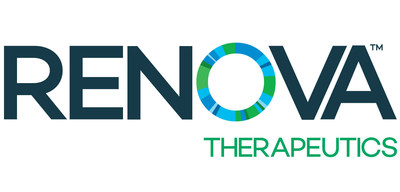Renova Therapeutics Release: U.S. Patent For Urocortin 2 Gene Constructs Issued
SAN DIEGO, Feb. 21, 2017 /PRNewswire-USNewswire/ -- Renova Therapeutics, a biotechnology company developing gene therapy treatments for congestive heart failure and type 2 diabetes, announced today that a patent for constructs and compositions containing the urocortin 2 gene, its analogs and uses thereof has issued in the United States. Renova Therapeutics holds an exclusive worldwide license to this patent from the nonprofit Research Development Foundation.

The company plans to research this therapeutic gene with the intent to create paracrine gene therapy treatments for sufferers of metabolic diseases such as type 2 diabetes, a key therapeutic area for the company.
"With the urocortin 2 patent granted, we've expanded our IP portfolio and ensured we can progress with our current pipeline," says Jack W. Reich, Ph.D., CEO & Co-founder of Renova Therapeutics. "The preclinical results we've seen with urocortin 2 gene transfer for type 2 diabetes have been astounding, and we look forward to continuing product development with this gene."
One or more of Renova Therapeutics' paracrine gene therapy product candidates may comprise the urocortin 2 gene constructs and analogs covered by this patent.
About type 2 diabetes
Type 2 diabetes accounts for up to 95% of the world's diabetes cases. It is associated with coronary artery disease, peripheral vascular disease and amputation, stroke, heart failure, kidney failure, blindness and peripheral neuropathy. Few diseases are as prevalent and affect so many organ systems as diabetes.
The discovery and development of more effective therapies for type 2 diabetes is imperative. The global prevalence of diabetes is estimated to be 422 million adults, a number that has nearly quadrupled from 108 million in 1980.1 In 2012, an estimated 1.5 million deaths were related to diabetes. The global annual cost of diabetes is USD 827 billion. In the United States, people with diabetes incur average medical expenditures of USD 13,700 per year, according to the American Diabetes Association.
About paracrine gene therapy
Renova Therapeutics' paracrine gene therapy treatments are based on a novel systemic approach that introduces therapeutic genes capable of directing the body's cells to work more normally. This proprietary approach exploits the use of peptide genes that possess favorable cardio-metabolic effects via their paracrine activity. This single-IV-injection treatment method is a foundation for future products that have the potential to bring about permanent improvements in heart failure and type 2 diabetes patients.
About Renova Therapeutics
Renova Therapeutics is developing definitive, one-time gene therapies and peptide infusion treatments to restore the health of people suffering from chronic diseases. The first indications the company is pursuing are gene therapy treatments for congestive heart failure (CHF) and type 2 diabetes, two of the most common and devastating chronic diseases in the world. The company's lead product, RT-100, is a treatment that delivers a therapeutic gene directly to the heart during a routine outpatient procedure and has the potential to increase heart function in millions of patients with CHF. The company's product pipeline also includes a groundbreaking gene therapy in preclinical stage for sufferers of type 2 diabetes, as well as a peptide infusion therapy for the treatment of acute decompensated heart failure. Renova Therapeutics was founded in 2009 and is led by an experienced management team in biopharmaceuticals and gene therapy. For additional information about the company, please visit www.renovatherapeutics.com.
REFERENCES:
1 Worldwide trends in diabetes since 1980: a pooled analysis of 751 population-based studies with 4.4 million participants. The Lancet, Volume 387, Issue 10027, 1513 1530.
To view the original version on PR Newswire, visit:http://www.prnewswire.com/news-releases/us-patent-for-urocortin-2-gene-constructs-issued-300409629.html
SOURCE Renova Therapeutics

